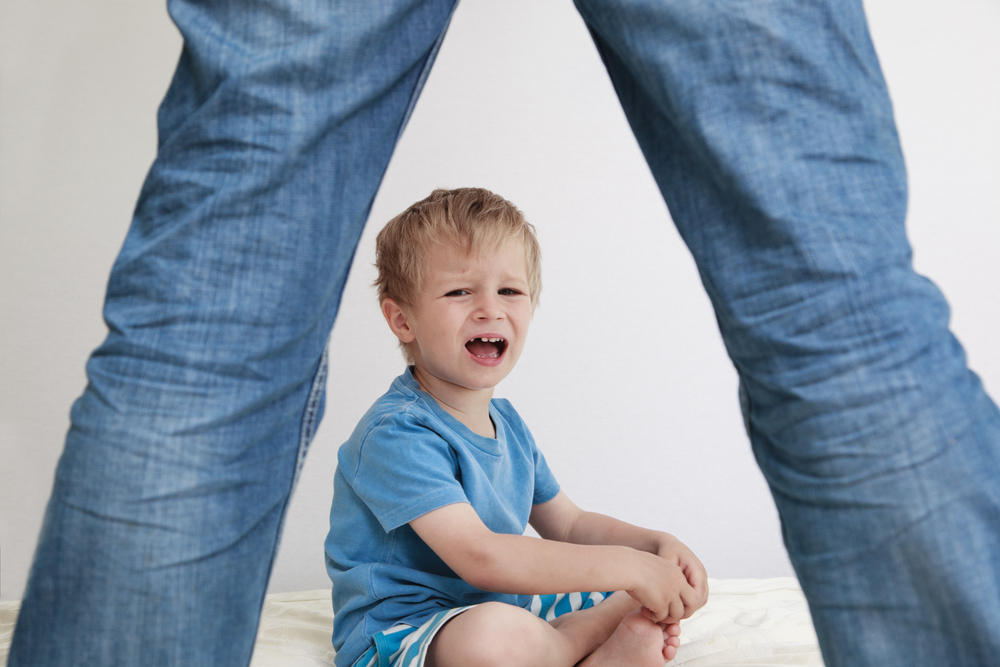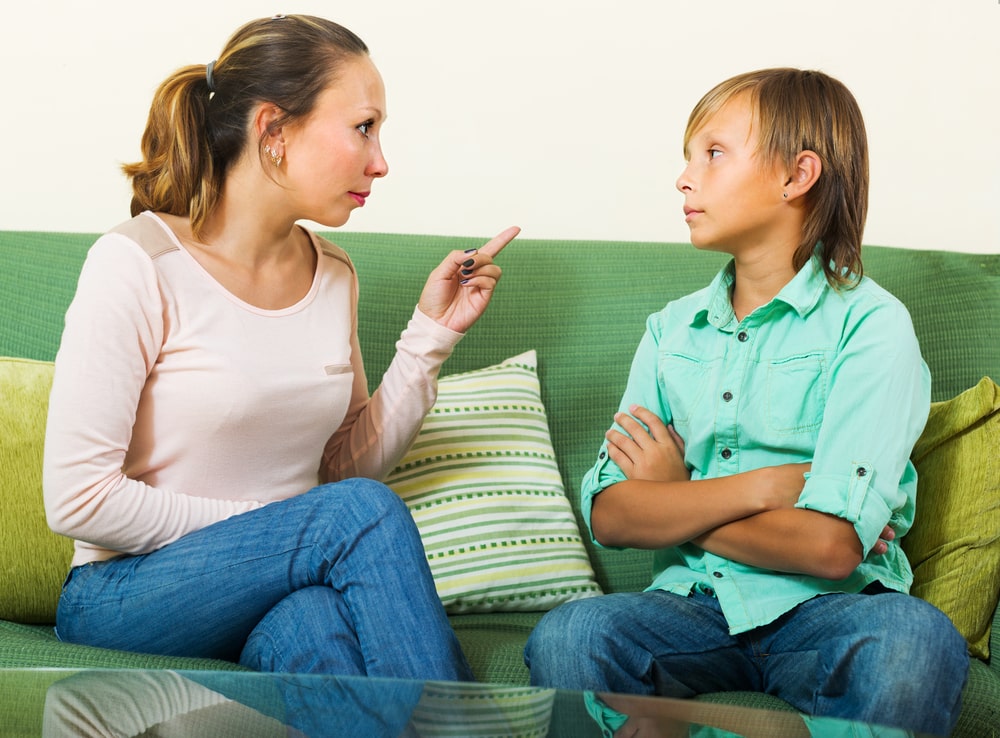The first time you see a toddler hitting himself, it can be alarming. Most parents are instantly concerned that kids hitting themselves will result in injuries, which can be mild or severe.
Usually, this behavior is nothing to be alarmed about. It’s pretty common. Toddlers know how to get what they want, and they have poor coping skills.
It can be tough dealing with all of those strong emotions daily. Here are some common reasons that you see your child hitting themself, and what you can do to help curb the behavior before it gets more serious.
In this article
Why Does My Toddler Hit Himself?
The main reason that toddlers hit themselves is simply that they are in a developmental stage, and it’s hard to deal with. Toddlers crave independence and structure at the same time.
They have a wide range of emotions, and they do not know how to deal with them. There are a few other reasons that you may see your kid hitting themselves, though.
One of the keys to preventing or stopping this behavior is identifying the trigger for it.
Stress Can Result In Your Child Hitting Themselves
Stress is a common reason that children hit themselves. What we view as minor inconveniences is a big deal for toddlers. They might still be a big deal for older children as well.
Stressful situations, such as dramatic changes in life, can add additional stress to your child’s life. For example, a divorce, move a new sibling, or other life changes.
Take Transitions Slowly
Using baby steps when making transitions can help toddlers slowly adjust to them. Children crave consistency and need it for healthy development.
If you and your partner split, make sure that you do your part to help them see their other parent if it’s safe for them. If not, let them grieve. Before moving into a new house, let your child see their new house.
Let them help decorate their room, and mark a day on the calendar so that they know when they will be moving.
When you take transitions slowly, it gives children more time to adjust and they have smaller changes to adjust to, which can be easier for them to handle.
This also applies to small changes in your little one’s life. For example, a change in their routine. If they are going to have an earlier bedtime, for example, slowly move their bedtime up in small increments of 20-30 minutes.
Common Triggers That Will Make Kids Hit Themselves
View in gallery
The same things that are common temper tantrum triggers can also lead to your little one hitting themself. For example, if they are hungry or tired, you might see this behavior. This can be them relieving frustration.
If you pay more attention to them when they hit themselves, it could also be a sign that they are trying to get your attention because they have a need, such as being hungry, that needs to be met.
Prevention Is Key For These Triggers
If you notice your toddler hitting themselves when they are tired or hungry, try to prevent the situation from occurring. Implement a naptime and feeding time schedule.
If your child is on medication that gives them an upset stomach, pick up some Pediasure as a meal replacement for the time being.
- 24 8-oz bottles
- 23 vitamins and minerals
- 240 calories
Prices pulled from the Amazon Product Advertising API on:
Product prices and availability are accurate as of the date/time indicated and are subject to change. Any price and availability information displayed on [relevant Amazon Site(s), as applicable] at the time of purchase will apply to the purchase of this product.
This can satisfy hunger when kids can’t eat but still want to. It may take a couple of weeks for their body to adjust to the schedule, but it will.
Releasing Frustration Is Another Reason
As previously mentioned, this is a way that many children release frustration. It could be frustration from not being able to do something, being told no, or simply being tired.
Children are not born with the healthy coping skills needed to deal with emotions, and we often don’t realize that they need help until we see behavior like this. It’s a sign that their emotions are so strong that they need our help.
Coping Skills For Toddlers
Toddlers might not understand how to cope with their emotions, but there are quite a few things that you can do to help them! Distraction will still work great at this age if your little one is not in the middle of a meltdown yet.
If you know that one is coming, give them their favorite toy to play with. Other things that children can do instead of hitting themselves:
- Ripping up paper
- Coloring
- Playing with Play-dough
- Cuddling
- Playing with sensory toys, such as sensory beads
- Punching a pillow
- Variety Sensory Fidget Pack: 1 metal infinity cube,1 fidget controller pad,1 pack Magnetic Rings(3pcs) and 1 bike chain.
- CHILD SAFE: Composed with eight (8) tough ABS plastic blocks linked together with strong stainless steel metal bearings. Durable and can withstand constant flipping and folding. Non-Toxic. Meets US Toy Standards. Safety Test-Approved. Durable. Superior Quality. Deluxe Set.
Prices pulled from the Amazon Product Advertising API on:
Product prices and availability are accurate as of the date/time indicated and are subject to change. Any price and availability information displayed on [relevant Amazon Site(s), as applicable] at the time of purchase will apply to the purchase of this product.
Some Children Hit Themselves When They Are Sick
If this behavior started suddenly when your child fell ill, that could be the cause. Children that are sick might feel tired and grumpy. They could be frustrated.
Children that are in pain might also hit the spot that is in pain. For example, my youngest had an inner ear infection.
She could not communicate that her ear hurt at the time, but she started crying and hitting her ear. If this is the underlying cause behind the behavior, it should subside when they feel better.
Kids Hitting Themselves As Attention Seeking Behavior
If you can’t seem to find a reason behind your child’s behavior, it could be attention-seeking behavior. Children want all of our attention, and they’re not always happy about not getting undivided attention.
If your little one does things to get your attention, this could be one of them. Walk away from your little one the next time they start hitting themselves. If they stop once they don’t have an audience, it’s more than likely attention-seeking.
View in gallery
How To Address Attention Seeking Behavior
The best way to address attention-seeking behavior is to not address it. However, you need to note that children display this behavior because their attention needs are not being met.
So, in addition to ignoring the attention-seeking behavior, it’s important that you give your little one plenty of positive attention as well. Make sure to read stories together, and give them plenty of praise for their good behavior.
Controlling Behavior
Children that exhibit controlling behavior do this in a wide variety of ways. Hitting themselves could be one of those ways. If you tell your little ones not to hit themselves, they could be doing this as an act of defiance.
It could be showing them that they get to control their body, not you. They are trying to frustrate you because this gives them control over their emotions.
Controlling behavior is commonly seen in children that are seeking more independence. Traumatizing events can also result in controlling behavior.
Children that are in a car accident might feel a sudden loss of control. They could not control the incident that happened, so they attempt to control everything around them.
How To Address Controlling Behavior
Addressing controlling behavior involves two steps. First, you need to address what caused the controlling behavior. If it was trauma, counseling can be helpful.
Next, you need to help your little one be in control of some things. Let them choose their outfit for the day. Give them a day when they get to pick dinner.
Children that have control over those little things in their life are less likely to display controlling behavior or try to control you.
Give It More Time
Children don’t go from controlling to not controlling behavior overnight. It takes time. Children that are traumatized will need to work through their trauma before this behavior starts to decrease.
Young children are by nature controlling. It’s how they get their needs met. It usually starts to decrease as children get older because they can meet more of their needs by themselves.
Helping your little one be more independent can help get them through this phase a little bit quicker.
View in gallery
Let Them Know They Are Capable
Children that are controlling might not feel capable of doing things on their own. They are more likely to resist when you help them become more independent.
If this is the case, consider giving them small tasks to do around the house. Then, make sure to praise them and tell them what a great job they did when they are done. This will slowly help them realize that they are able to do things on their own.
Give In A Little Bit
If your child is being dishonest, breaking the law, or doing something unsafe, it’s not going to turn out well if you give in.
However, if your child wants to stay up for one more story even though it’s a few minutes past their bedtime, there’s no harm in that. When children don’t have as strict of rules to follow, they tend to relax a bit more.
Look at the rules that your little one is expected to follow, and make sure that you aren’t being a tad too strict.
In Conclusion
Your child hitting themselves is a sign that they are frustrated, stressed, in pain, or are being controlled.
Discovering the underlying cause of the situation will help you figure out how to approach the situation so that you can help your child stop hitting themselves.






